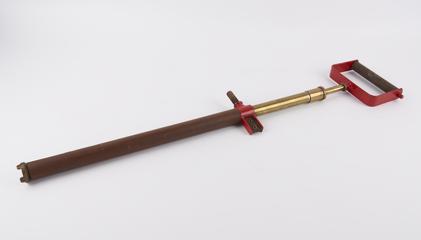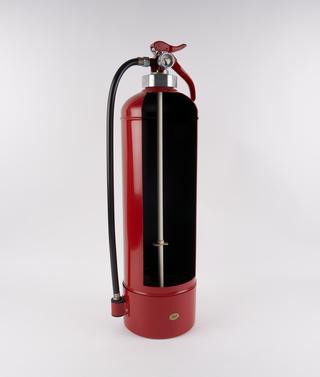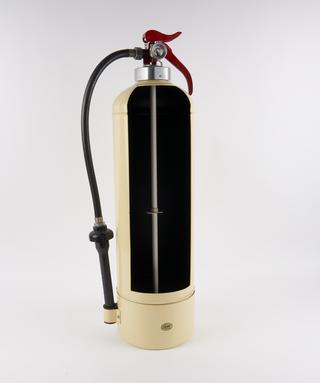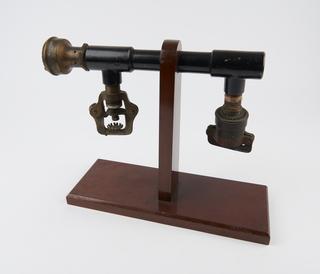
Fire extinguisher
- Made:
- 1910-1925
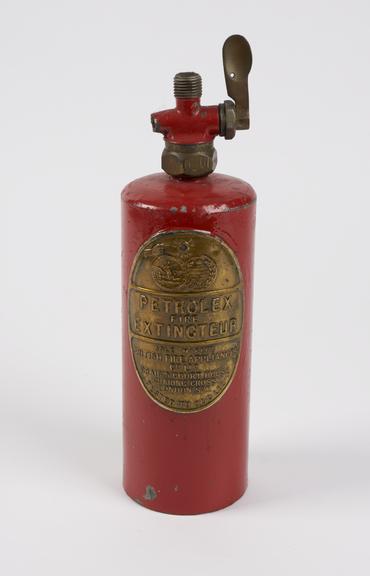
Fire extinguisher, red, "Petrolex extincteur", sparklet-powered, by British Fire Appliance Co Ltd, Craig's Court House, Charing Cross, London SW. Nozzle broken off, no sparklet attachment
Petrolex fire extinguishers contained a chemical called carbon tetrachloride to extinguish the fire. This chemical was commonly found in fire extinguishers historically but is rarely used in any capacity today due to its high level of toxicity.
The device also utilized pressurised C02 cartridges invented by Read & Campbell, two Scottish engineers, in 1881. Once the pressurised cartridges were pierced, the pressure within the device would expel the contents. The device emerged around 1911.
This particular extinguisher is likely an early example as it is branded by British Fire Appliance Co., who were incorporated into Read & Campbell in the early 1920s – in the first decade or so of the product’s existence. Petrolex extinguishers were embossed with both company’s branding for a short time, so this example likely pre-dates the merge.
The device is also unusual due to its red shade. Whilst this colour is synonymous with fire extinguishers and fire engines today, many extinguishers of this time were actually copper.
‘Petrolex’ extinguishers were mainly marketed for automotive use, named due to their ability to put out petrol fires. They gained a seal of approval from Royal Automobile Club’s testing on petrol fires. They were also capable of putting out electrical fires, gaining test approval from the North Metropolitan Electric Power Supply Company.
